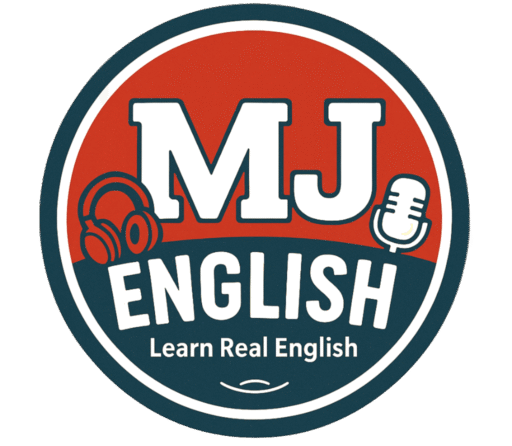在台灣,父親節是8月8日,因為「八八」聽起來像「爸爸」。但如果你問美國人 “Do you celebrate Father’s Day on August 8th?”,他們可能會一頭霧水。
其實美國的父親節是在每年六月的第三個星期日,而且有一段特別的歷史背景。
這篇文章就用一段輕鬆有趣的對話,讓你一次搞懂美式父親節的時間與英文表達法!
🎧Apple Podcast | Spotify
💬 Dialogue | 對話練習
台灣學生 Lily 和她的美國朋友 Jake 在聊天,Lily 想送父親節禮物,卻意外發現日期根本不一樣!
🔸 English Dialogue
Lily: Hey Jake, are you getting your dad something for Father’s Day this week?
Jake: Hmm? Father’s Day isn’t this week. It’s in June.
Lily: Wait, really? I thought it’s on August 8th!
Jake: Oh! That’s in Taiwan, right?
Lily: Yeah! “Eight-eight” sounds like “Baba” which means dad.
Jake: That’s so cool! In the U.S., it’s the third Sunday of June.
Lily: I had no idea. So you already celebrated it this year?
Jake: Yep! I gave my dad a new BBQ set.
Lily: Nice! I’m planning to get mine a neck massager.
Jake: Great idea. Dads deserve a break!
Lily: Totally agree. By the way, is there a special Mother’s Day too?
Jake: Yeah, it’s the second Sunday of May.
Lily: Looks like your holidays are all on Sundays!
Jake: You noticed! It’s easier for family gatherings that way.
🔸 中文翻譯
Lily:嘿 Jake,你這週要送爸爸父親節禮物嗎?
Jake:咦?父親節不是這週啊,是六月欸。
Lily:蛤?真的嗎?我以為是8月8號耶!
Jake:啊~那是在台灣對吧?
Lily:對啊!「八八」聽起來像「爸爸」~
Jake:好有趣喔!在美國是每年六月的第三個星期日喔。
Lily:我完全不知道耶~所以你們今年已經過了?
Jake:對啊!我送爸爸一組新的烤肉架~
Lily:不錯耶,我打算送我爸按摩器。
Jake:讚讚,爸爸們也需要放鬆一下。
Lily:超認同!對了,那你們有母親節嗎?
Jake:有喔,是五月的第二個星期日。
Lily:你們節日都選在星期日耶~
Jake:你發現了~因為這樣家人比較好聚在一起!
📚 Vocabulary Boost 單字
| 單字 | 詞性 | 中文意思 | 英文例句 | 中文翻譯 |
|---|---|---|---|---|
| celebrate | verb | 慶祝 | We always celebrate Father’s Day with a family dinner. | 我們總是用家庭聚餐來慶祝父親節。 |
| barbecue (BBQ) | noun | 烤肉 | I bought my dad a new barbecue set. | 我買了一組新的烤肉架送爸爸。 |
| massager | noun | 按摩器 | This neck massager is perfect for relaxing. | 這台頸部按摩器超適合放鬆。 |
| gathering | noun | 聚會、聚餐 | We had a big family gathering on Sunday. | 我們星期天有個大家庭聚會。 |
| deserve | verb | 應得 | He works hard and deserves a break. | 他工作辛苦,應該好好休息一下。 |
🔍 Sentence Patterns 句型
| 句型結構 | 中文意思 | 英文例句 | 中文翻譯 |
|---|---|---|---|
| Father’s Day is on… | 父親節是在…… | Father’s Day is on the third Sunday of June. | 父親節是在六月的第三個星期日。 |
| I’m planning to… | 我打算去…… | I’m planning to get my dad a neck massager. | 我打算送爸爸一台頸部按摩器。 |
| Did you know that…? | 你知道……嗎? | Did you know that in Taiwan, Father’s Day is in August? | 你知道台灣的父親節是在八月嗎? |
| That’s so + adj.! | 那真是太……了! | That’s so interesting! | 那真是太有趣了! |
| Looks like + 子句 | 看起來…… | Looks like your holidays are all on Sundays. | 看起來你們的節日都在星期日耶。 |
📖 Transcript 逐字稿
M: You know, I once tried to wish a friend Happy Mother’s Day, and… well, it turned out I was completely wrong about the date in their country.
M: 你知道嗎,我曾經想跟朋友說「母親節快樂」,結果──我完全搞錯了他們國家的日期。
M: It really made me realize how things that seem universal… can actually be very different.
M: 這讓我深刻體會到,看似普通的事情,其實可能非常不同。
M: Welcome to MJ English.
M: 歡迎收聽 MJ English。
J: Today, we’re going to look at exactly these kinds of cultural differences, using a simple and fun conversation as our guide.
J: 今天,我們要透過一段簡單又有趣的對話,來探討這種文化差異。
M: We’ll listen to it, and then we’ll break it down and look at some new words and useful phrases.
M: 我們先聽這段對話,然後再逐句解析,學一些新單字和實用片語。
M: Okay, so let’s listen to this chat between Lily and Jake.
M: 好,現在來聽聽 Lily 和 Jake 的對話。
台灣學生 Lily 和她的美國朋友友 Jake 在聊天,Lily 想送父親節禮物,卻意外發現日期根本不一樣!
🔸 English Dialogue
Lily: Hey Jake, are you getting your dad something for Father’s Day this week?
Jake: Hmm? Father’s Day isn’t this week. It’s in June.
Lily: Wait, really? I thought it’s on August 8th!
Jake: Oh! That’s in Taiwan, right?
Lily: Yeah! “Eight-eight” sounds like “爸爸” which means dad.
Jake: That’s so cool! In the U.S., it’s the third Sunday of June.
Lily: I had no idea. So you already celebrated it this year?
Jake: Yep! I gave my dad a new BBQ set.
Lily: Nice! I’m planning to get mine a neck massager.
Jake: Great idea. Dads deserve a break!
Lily: Totally agree. By the way, is there a special Mother’s Day too?
Jake: Yeah, it’s the second Sunday of May.
Lily: Looks like your holidays are all on Sundays!
Jake: You noticed! It’s easier for family gatherings that way.
🔸 中文翻譯
Lily:嘿 Jake,你這週要送爸爸父親節禮物嗎?
Jake:咦?父親節不是這週啊,是六月欸。
Lily:蛤?真的嗎?我以為是8月8號耶!
Jake:啊~那是在台灣對吧?
Lily:對啊!「八八」聽起來像中文「爸爸」~
Jake:好有趣喔!在美國是每年六月的第三個星期日喔。
Lily:我完全不知道耶~所以你們今年已經過了?
Jake:對啊!我送爸爸一組新的烤肉架~
Lily:不錯耶,我打算送我爸按摩器。
Jake:讚讚,爸爸們也需要放鬆一下。
Lily:超認同!對了,那你們有母親節嗎?
Jake:有喔,是五月的第二個星期日。
Lily:你們節日都選在星期日耶~
Jake:你發現了~因為這樣家人比較好聚再一起!
M: Okay, so quite a few interesting points in just that short exchange.
M: 好,短短一段對話就出現了不少有趣的重點。
J: The main thing jumping out is the Father’s Day date, right?
J: 其中最明顯的是父親節的日期差異,對吧?
M: Like Lily mentioned, in Taiwan, it’s August 8th.
M: 就像 Lily 說的,台灣的父親節是 8 月 8 日。
J: And the reason is linguistic, which is pretty neat.
J: 而且原因跟語言有關,真是很有意思。
M: Right, the 8/8 sound—“爸爸” It sounds just like “dad” in Mandarin.
M: 沒錯,8 月 8 日發音「八八」和國語「爸爸」很像。
J: So the date itself sounds like the word for “dad”?
J: 原來日期本身就跟「爸爸」同音?
M: Exactly.
M: 完全正確。
J: That’s fascinating.
J: 真有趣。
M: It is. And then you compare it to the US, like Jake said…
M: 是啊,然後跟美國比,就像 Jake 說的……
J: It’s the third Sunday in June. No sound connection there.
J: 美國父親節是六月的第三個星期日,跟發音沒有關係。
M: Nope. It seems the US approach—same with Mother’s Day—is more about convenience.
M: 沒錯。看來美國的安排跟母親節一樣,主要是考量方便。
J: Yeah, second Sunday in May.
J: 母親節是五月的第二個星期日。
M: Putting it on a Sunday so people are generally off work, schools are closed, and it’s easier to have family gatherings.
M: 選在星期日,大家普遍不上班、學校也放假,更容易全家團聚。
J: So it’s a different kind of logic behind the holiday.
J: 所以假日背後的邏輯就不一樣了。
M: One based on language and culture, the other on practicality.
M: 一個是語言文化因素,一個是實用便利考量。
M: Let’s shift gears a bit. Time for our vocabulary boost to help you pick up some words from that conversation.
M: 我們現在進入「單字加油站」,幫你整理對話中的重點單詞。
M: First up is celebrate. It’s a verb. It means to honor a special day or event.
M: 第一個是 celebrate(慶祝)。這是動詞,意思是為了紀念某個特殊日子或事件而慶祝。
M: Like: “We always celebrate Father’s Day with a family dinner.”
M: 舉例:「我們總是在父親節舉行家庭聚餐來慶祝。」
M: You celebrate birthdays, holidays, achievements… things like that.
M: 你可以 celebrate 生日、節日、成就……等等。
M: Next, barbecue. It’s a noun. It can mean the way you cook food outdoors—usually on a grill—or the grill itself.
M: 下一個是 barbecue(烤肉)或 BBQ。這是名詞,可以指戶外用烤架烹調食物的方式,也可以指烤架本身。
M: Jake said, “I gave my dad a new barbecue set.” A very classic Father’s Day gift in some places.
M: Jake 說:「我送給爸一組新的烤肉器具。」在某些地方,這是父親節很經典的禮物。
J: Okay, my turn. How about massager? That’s a noun.
J: 接下來換我。massager(按摩器),也是名詞。
J: It’s a device—something you use to give a massage, to help someone relax.
J: 它是一種裝置,用來按摩或幫助放鬆。
J: For example: “This neck massager is perfect for relaxing.”
J: 舉例:「這款頸部按摩器很適合放鬆使用。」
J: Then there’s gathering. It’s also a noun, and it just means a meeting or a get-together—usually a social one.
J: 然後是 gathering(聚會)。也是名詞,指開會或聚會,通常是社交性質。
J: Like Jake mentioned, “We had a big family gathering on Sunday.”
J: 像 Jake 說的:「我們星期天辦了一場大家庭聚會。」
J: And one more—deserve. This is a verb. It means to be worthy of something, or to have earned something—usually something good—through your actions.
J: 最後是 deserve(值得;應得)。這是動詞,意思是因為你的努力或行為,理所當然擁有某事,通常是好的事物。
J: Like: “He works hard and deserves a break.”
J: 舉例:「他工作很努力,應該得到休息。」
M: Which ties back to Father’s Day.
M: 這跟父親節呼應得很貼切。
J: Dads deserve a break.
J: 爸爸們都值得放鬆一下。
M: All right, useful words. Now let’s look at some sentence patterns—phrases you can actually use yourself.
M: 好,學完單字,再來看看幾個句型,都是你可以直接運用的。
M: First one is super straightforward for talking about holidays:
M: 第一個句型非常直接,用來講假日時很方便:
M: “Father’s Day is on…” followed by the date or day.
M: 「Father’s Day is on …」然後接日期或星期幾。
M: From the dialogue: “Father’s Day is on the third Sunday of June.”
M: 在對話裡:「Father’s Day is on the third Sunday of June.」
M: Or “Father’s Day is on August 8th.”
M: 或者「Father’s Day is on August 8th.」
M: Another one is for future plans: “I’m planning to” plus a verb.
M: 下一個是用來表達未來計畫:「I’m planning to」加動詞。
M: Lily said, “I’m planning to get my dad a neck massager.”
M: Lily 說:「I’m planning to get my dad a neck massager.」
M: You can use it for anything: “I’m planning to study English tonight.”
M: 你可以這樣用:「I’m planning to study English tonight.」
J: Okay, here’s a pattern for introducing a surprising fact, or asking if someone knows something:
J: 然後這是一個用來引出驚訝事實或詢問對方知不知道的句型:
J: “Did you know that…”
J: 「你知道……嗎?」
J: Like, “Did you know that in Taiwan, Father’s Day is in August?”
J: 比如:「你知道在台灣, 父親節是在8月嗎?」
M: Yeah, definitely sets up something interesting.
M: 對,這樣就能勾起對方好奇。
J: And how about expressing strong feelings? “That’s so…” plus an adjective.
J: 再來是表達強烈情感:「That’s so …」加形容詞。
J: Jake said, “That’s so cool” when he heard about the Taiwan date.
J: Jake 聽到台灣父親節日期時說「That’s so cool」。
J: You could say, “That’s so interesting,” or “That’s so kind.”
J: 你也可以說「That’s so interesting」或「That’s so kind」。
M: Very common, very natural.
M: 很常用,也很自然。
J: Yep. And lastly, for making an observation based on what you’re seeing or hearing—
J: 最後是根據所見或所聞做觀察的句型──
J: “Looks like…” plus a sentence.
J: 「Looks like …」加一個句子。
J: Lily said, “Looks like your holidays are all on Sundays.”
J: Lily 說:「看起來你們的假日都在星期天.」
M: That’s a lot of useful stuff in just one conversation.
M: 這一段對話就教了好多實用東西。
J: Totally. And just a quick reminder—if you want the transcript for this episode, or more vocabulary and info, click the link below.
J: 完全沒錯。順便提醒,如果想要本集完整字幕或更多單字資訊,請點下方連結。
M: So reflecting on this—
M: 回顧一下──
M: It’s really interesting how even a short chat about a holiday date can open up a window into different cultures, right?
M: 光是一段關於節日日期的小聊,就能窺見不同文化,真的很有趣吧?
J: It really makes you want to listen more closely next time you hear about a custom that’s different from your own.
J: 下次聽到跟自己不一樣的習俗,就會更想仔細聆聽了。
M: Thanks for tuning in today!
M: 感謝今天的收聽!
M: If you enjoyed today’s episode and learned something new…
M: 如果你喜歡今天的內容並學到新東西……
J: Don’t forget to follow or subscribe to MJ English!
J: 別忘了追蹤或訂閱 MJ English!
M: We drop new episodes every week to help you sound more natural and confident in English.
M: 我們每週更新新集,幫助你說英文更自然、更有自信。
J: One conversation at a time!
J: 就從每段對話開始練習!
M: And if you found this helpful, share it with a friend—or even better…
M: 如果你覺得有幫助,記得分享給朋友,或者更棒的是……
J: Leave us a quick review. It really helps us reach more English learners like you!
J: 幫我們留個評價,這能讓更多像你一樣的英語學習者找到我們!
M: Thanks again for tuning in.
M: 再次謝謝你的收聽。
J: See you next time on MJ English!
J: 下次 MJ English 見!
M: Bye for now!
M: 先掰掰囉!



